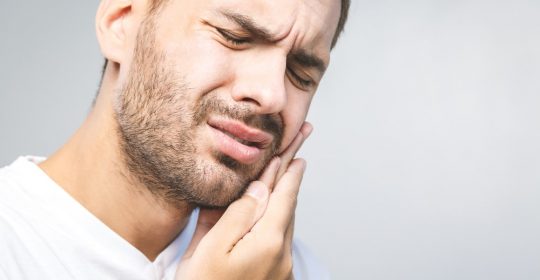
Effects of Flying with a Toothache
Did you know that flying can cause or worsen a toothache? Whilst you might not even know you have a problem, your next flight could reveal a harsh and painful reality.
Have you ever been on a flight and all of a sudden been struck with an intense toothache, despite not having one prior to the flight? This is actually a result of atmospheric pressure constantly switching as the airplane climbs and descends. Our bodies can’t keep up with the shifts in pressure – resulting in the typical headaches, popped ears, and swelling.
There are two dental conditions that can make you especially susceptible to an in-flight toothache:
Fillings: Air pockets can get stuck in tooth fillings, and these air pockets can expand or contract with changes in air pressure. With nowhere to go, the pressure will build inside the tooth and lead to a toothache.
Decay: Similar to fillings, air can get can get inside a tooth with decay. When a tooth begins to decay, the tooth will slowly erode and create open sockets for air to leak into. With the air having no place to go, it’ll build pressure within your tooth and create havoc until atmospheric pressures regulate.
So we understand what causes in-flight toothaches, but is there a way of preventing them?
How to prevent a toothache
Toothaches can be painful, and the last thing you want is a toothache whilst cramped on a plane for 6 hours. So what can you do to prevent the inevitable? Let’s get the easy answer out of the way: don’t fly when you have an untreated dental issue. Understandably, this isn’t possible for some people but if you know you have a dental problem, see your dentist before flying. If you’ve had dental work done recently speak with your dentist about how you might react to changes in atmospheric pressure.
Tips for dealing with persistent pain
Here are some tips to relieve pressure and pain if you’re mid-flight with a toothache.
- Suck on candy / Slowly chew gum
- Keep earplugs in during takeoff and descent
- Listen to music
- Use decongestant
- Stretch your legs as much as possible
These are all just short-term solutions and shouldn’t be read as a permanent solution. The best course of action is to consult with your dentist on a treatment plan. If you’re a regular flyer we recommend working out a treatment/check up plans with your dentist to ensure you have no toothaches whilst flying in the future.
At Redbank Plains Dental, your local Augustine Heights dentist, we’re here to help with all your dental health needs. To find out more about our services, contact us today.
Leave a reply →
Most Commented